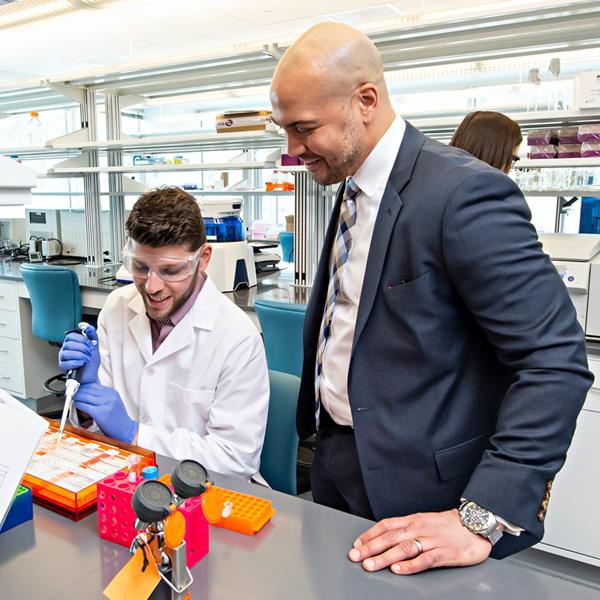
Determine Predisposition to Disease
If you're interested in using cutting-edge experimental and computational technologies to uncover how genetic factors influence health and disease, consider pursuing an MS in Human Genetics, an MS in Genome Bioinformatics, or a PhD/MD-PhD in Human Genetics. For those who want to apply genetic knowledge to improve population health, the MPH and certificate in Public Health Genetics are ideal. If counseling patients and their families about genetic disease risk appeals to you, explore the MS in Genetic Counseling or the dual MS/MPH program.
The MPH in Human Genetics program integrates genetics and the public health science disciplines of epidemiology, pathobiology, biostatistics, environmental health, and health services research, with ethics, social sciences, public affairs, economics and law.
The MSGC graduate program at the University of Pittsburgh is committed to providing cutting edge training in the complex science of genetics while fostering a strong foundation in counseling.
The MSGB program prepares students for careers analyzing the human genome both in academia and in pharmaceutical and genomic testing industries.
The MSHG program prepares students for careers as contributing members of genetics and genomics research teams in academia or industry.
The doctoral program in human genetics prepares students for careers leading genetics and genomics research in academia or industry.
The joint MD/PhD program is a unique arrangement between the Department of Human Genetics and the MSTP, a collaboration between the University of Pittsburgh and Carnegie Mellon University.
Graduates of the dual degree program are well-prepared to integrate public health genetics into clinical, research, public health, and industry settings.
The certificate in Public Health Genetics trains graduates to incorporate knowledge of how genes, together with the environment and behavior, influence health and apply this insight into their area of practice or research.
Academic Resources


